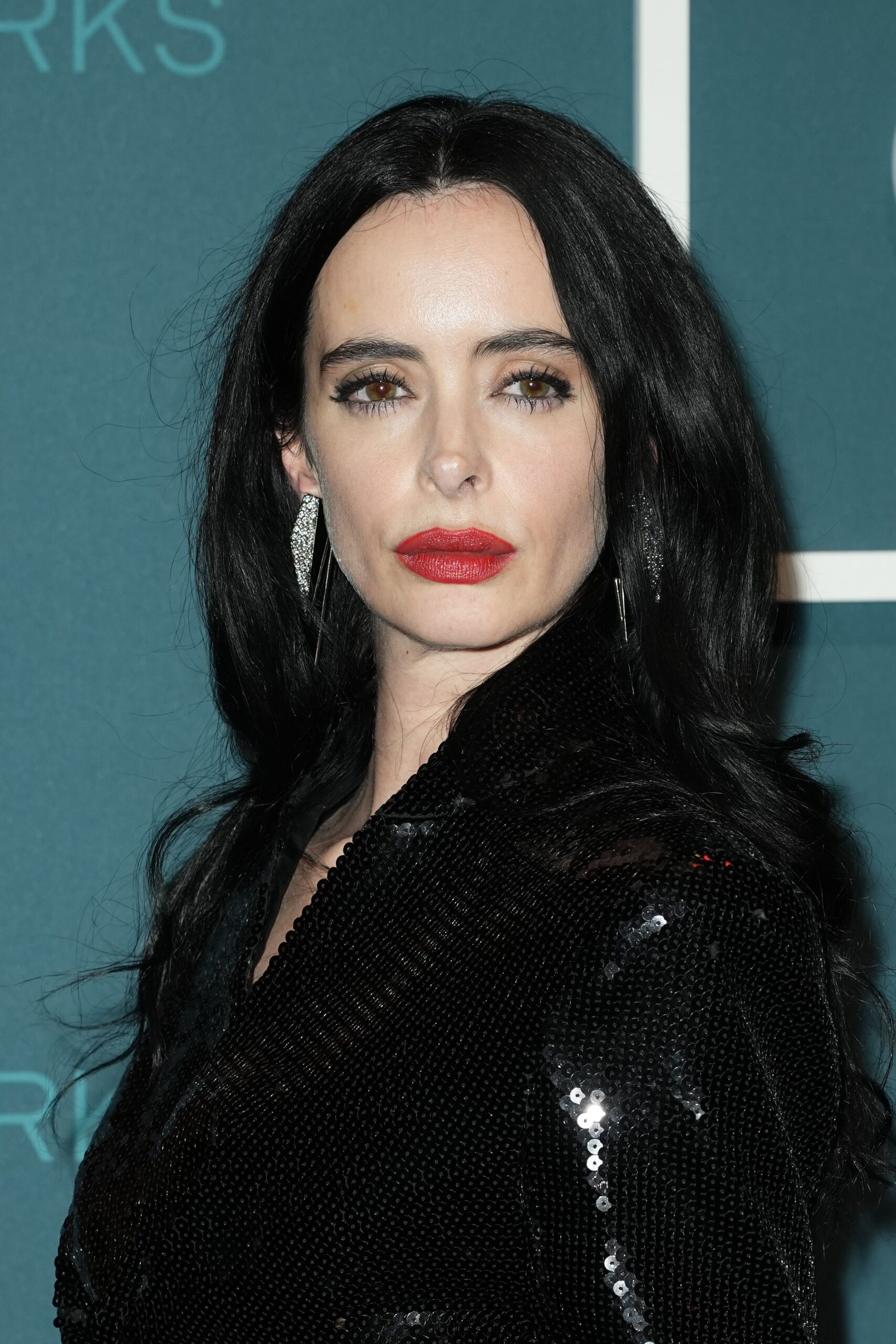
Krysten Ritter Photo by John Nacion/Shutterstock
Unlike most superheroes, Jessica’s getup is Kentucky bourbon, a leather jacket, and a pair of black boots…
Broken women on TV are a lot more common these days. Since Season 1, Netflix’s “Jessica Jones” has grappled with morality, the grey area between good and bad, and the circumstances in which people do horrible, albeit necessary things to survive, and it has done so, not through a friendly neighborhood hero, but a lush who forges her anger management report cards. Her name’s Jessica Jones (Krysten Ritter) and she’s mad… for good reason.
Season 2 opens with the aftermath of Kilgrave’s death as Jessica reconciles her hero image with reality. She’s technically a killer, with two fatalities added to her roster. The question still remains: Who is Jessica Jones? If she’s a superhero, she flat-out sucks. For a woman that’s apparently suffered atrocious experimentation, her strength is a bit underwhelming. At most, her abilities vaguely consist of lifting heavy objects, opening steel doors, and strong-arming bad guys. When Jessica isn’t throwing people against walls and negotiating the terms of her pay—courtesy of an unlicensed, private investigation business ran in her very own apartment—she’s drowning her demons with booze and, what I’m assuming is cross-promotion within the Marvel Cinematic Universe, hooking up with Luke Cage (Mike Colter) and various other men who show up as quickly as they leave.
Marvel’s Jessica Jones | Official Trailer [HD] | Netflixwww.youtube.com
If she’s an anti-hero—which she is—she’s incessantly tormented, and not in the traditional Spidey-can’t-have-his-cake-and-eat-it-too way, but in a DC-I’m-Batman kind of way. It’s the classic superhero conundrum: Anyone who gets too close is at risk and a liability Jessica cannot assume. The series is quite dark, at least darker than most Marvel fare—yes, there are bodega robberies, the occasional car chase, and cool explosions, but “Jessica Jones” is a drama first and foremost, and its heroes are women learning to deal with the trauma of their past. Jessica is a hero, just not in the traditional sense. Her perseverance to overcome victimhood and regain the power she’s been stripped of is a virtuous act. Still, there are no tricks up her sleeve, just a desire to survive, an undeniably human trait that many comic book adaptations fail to unpack.
Unlike most superheroes, Jessica’s getup is Kentucky bourbon, a leather jacket, and black boots—a modern-day femme-fatale who, on a good day, will simply knock you out cold if provoked. Echoing the sentiments of the #MeToo movement, Season 2 examines toxic masculinity through interpersonal relationships: Trish (Rachael Taylor) confronts a film agent who coerced her into a relationship at age 15; Jessica comes to terms with her abduction at Kilgrave’s hand; Jessica’s mother laments missed career opportunities due to marital strife; And Malcolm (Eka Darville) trades heroin for women, a less toxic but equally addictive replacement. I wouldn’t call watching a woman relive flashbacks of her worst memories—childhood experimentation, forced servitude, rape, and murder—binge-able material, unless, of course, you’re also dependent on bottom-shelf whiskey. It’s a slow-burner, with the appearance of film noir, a quiet meditation on how women support one another, protecting each other from dangers that are far too familiar and common.
Ironically, the big bad wolf this time around isn’t a deranged mind controller, but a scientist so infatuated with his research and molecular compounds, he’s convinced himself and those around him that his human experiments, despite a growing number of casualties, are beneficial to society. Those that survive are cursed with powers and abilities they’d be better off without. Power is a fleeting aphrodisiac, and in its wake is the facade of heroism, the illusion of saving others, a thankless job neither Jessica or her foil character, Trish, are equipped to handle.
These are women who have seen men abuse power over those who are vulnerable; naturally, then, their quest to gain and manage power is admirable but troubled. They want to feel safe, to have agency over their bodies and choices, to offer help and protection to their loved ones, to be taken seriously in their professions, but the world has already determined the conditions of their bodies and time, a metaphor “Jessica Jones” doesn’t shy away from. Consider this series a fast food course in trauma theory and gender studies, then, after watching Jessica lose everything that matters to her, redefine the term hero. Sometimes it’s simply the act of not giving up.
POP⚡DUST Score: ⚡⚡⚡⚡
Shaun Harris is a poet, freelance writer, and editor published in avant-garde, feminist journals. Lover of warm-toned makeup palettes, psych-rock, and Hilton Als. Her work has allowed her to copyedit and curate content for various poetry organizations in the NYC area.
POP⚡DUST | Read More About Film/TV…
BOX OFFICE BREAKDOWN | What’s coming to theaters this weekend?
INTERVIEW | Composer Siddhartha Khosta
THE REAL REEL | Showtime’s Carrie Mathison is a Huge Disappointment… and I Know Why We Love Her.














